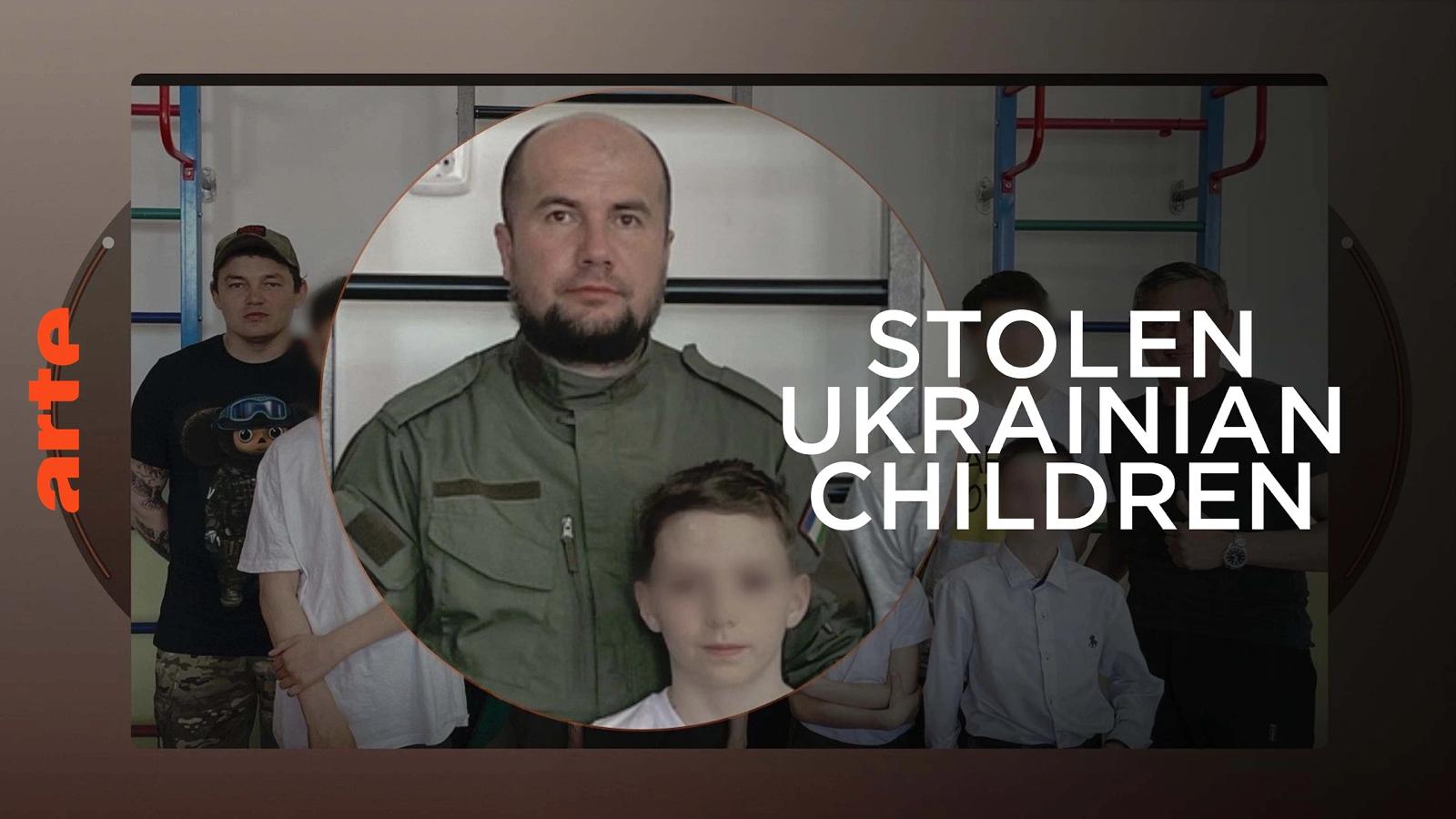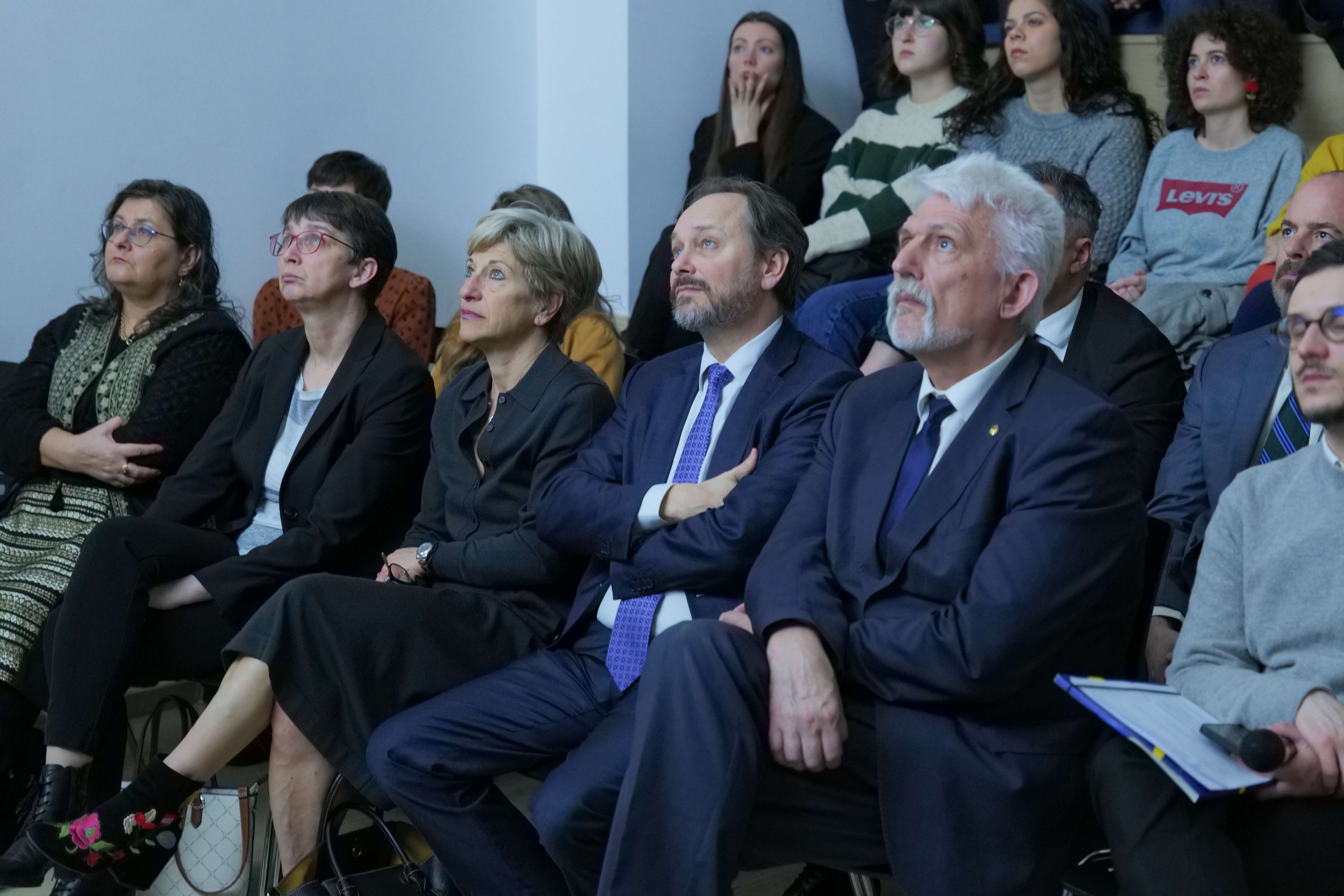The documentary film "The Stolen Children of Ukraine", co-produced by CAPA Presse and the German-French ARTE television, was shown at the EU Info Center Belgrade on 23 February, as part of the commemoration of two years since the beginning of the Russian aggression against Ukraine.
The film follows the fate of more than 19,000 children who were forcibly taken from the occupied territories in Ukraine and brought to Russia. It premiered on ARTE television in July 2023. The screening was held in the presence of the authors of the film, French journalists Manon Bachelot and Pauline Tchoubar, Ambassador of the European Union to Serbia Emmanuel Gioffre and Ambassador of Ukraine Volodymyr Tolkach.
In his opening address, Ambassador Giaufret stated that "the illegal deportation of children from Ukraine by Russia constitutes a crime."
The unlawful deportation of children from Ukraine carried out by Russia constitutes a crime. Russian President Vladimir Putin has repeatedly claimed that Ukraine does not exist as a nation and that Ukrainian identity is artificial. The mass abductions of Ukrainian children we hear about seem to be a part of a structured policy. The war and these deportations are solely about annihilating an independent country, conquering land, and re-establishing dominance over a people that decided to be masters of their own destiny. A truly European destiny since Ukraine wants to become an EU member,” Giaufret said.
Ukrainian Ambassador Volodymyr Tolkach said that the film deals with an extremely sensitive topic: “Today’s screening of the documentary film “The Stolen Children of Ukraine” raises a very important and sensitive issue that is the result of Russian aggression against Ukraine. It is the issue about the fate of the most unprotected, and therefore it is the most painful for all Ukrainian citizens – Ukrainian children affected by the war. The film provides information about children who were stolen in Ukraine and taken to Russia and occupied Ukrainian territories, as well as about the methods used by the Russian Federation to abduct them. The Russian occupation administration especially takes children to the Russian Federation in order to destroy the future of Ukraine. Ukraine demands their return. We submitted the list with names of our children to Moscow.”

The screening of the film was attended by the ambassadors of Belgium, Germany and Romania, diplomatic representatives of the US and French embassies, the EU Delegation, as well as representatives of civil society, journalists and journalism students from Belgrade and Novi Sad.
After the screening, a Q & A session was held during which the authors of the film discussed with the audience about the way of working and motivation for the chosen topic. Manon Bachelot and Pauline Tchoubar emphasised that the most important thing for them was to document the way in which the Russian authorities carried out the forced removal of Ukrainian children, and that it was an action organised from a high level of government.

"Two years after the beginning of the Russian invasion of Ukraine, we believe it is important to continue to speak about Russia's war crimes, because many Ukrainian children are still in Russia today. In Russia today it is very difficult to do physical research, but it is very important to continue it in some other ways. In order to shed light on the system and methods used by the Russians in the deportation of Ukrainian children, we analyzed especially Russian propaganda in the press and on social networks", pointed out the authors of the film.
The event was organised by the EU Delegation to Serbia through the project "Pulse of Europe - media trips to EU".



